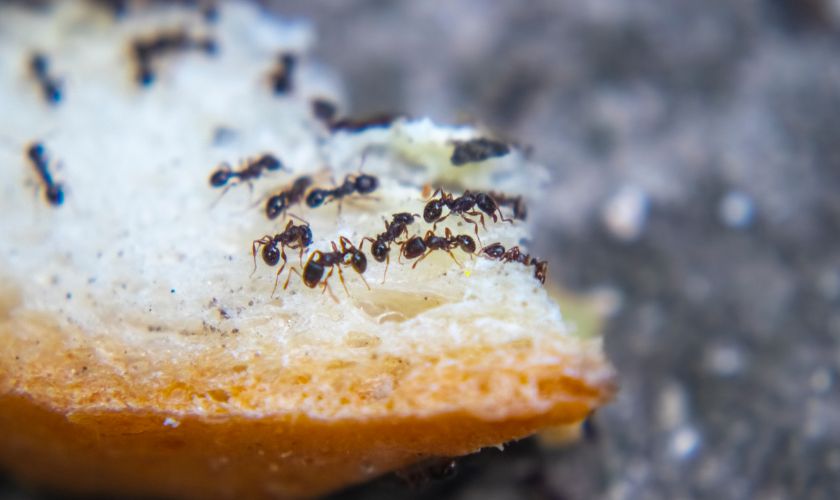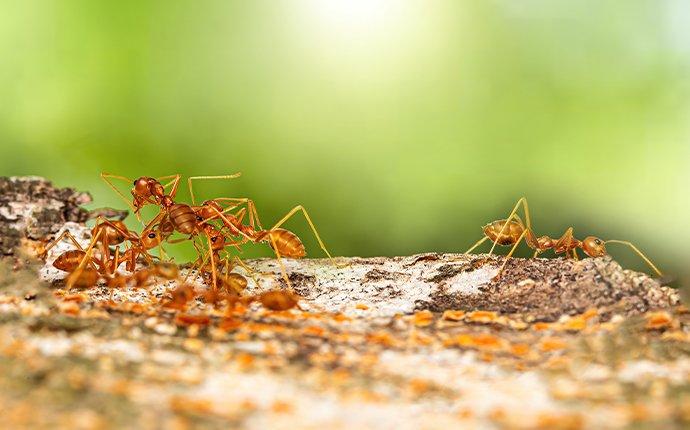Why Select Our Termite Control Services: Professional Solutions for Effective Security
Environmental Influence of Bug Control: Balancing Effectiveness With Sustainability
The environmental impact of parasite control is a critical concern that needs a delicate balance in between attaining efficiency in making sure and handling pests sustainability of our environments. As we strive to shield our plants, homes, and wellness from the dangers postured by bugs, the approaches we employ can accidentally hurt the setting. From using harmful chemicals that permeate into our soil and water to the unexpected consequences on non-target species, the repercussions of standard pest control practices are far-ranging. There are arising strategies that supply hope for an extra sustainable method to pest monitoring. These solutions not just purpose to attend to the instant pest problems yet also take into consideration the lasting wellness of our world.
Dangerous Chemicals in Parasite Control
The usage of unsafe chemicals in bug control positions substantial environmental and wellness dangers that require mindful consideration and reduction approaches. Herbicides, insecticides, and pesticides are typically utilized to eliminate bugs, yet their extensive application can bring about unintentional effects. These chemicals can contaminate dirt, water sources, and the air, influencing not just the targeted insects yet likewise advantageous bugs, wildlife, and people.

To attend to these threats, integrated insect monitoring (IPM) methods are being promoted as a more lasting option. IPM entails a combination of approaches such as biological control, habitat manipulation, and the targeted use of pesticides as a last resource (ant control burlington nc). By adopting an alternative technique to pest control, we can decrease the ecological and wellness influences connected with unsafe chemicals while properly managing pest populations
Effect on Non-Target Variety
Taking into consideration the unintentional effects of insect control approaches, the influence on non-target species is a critical aspect that requires comprehensive assessment. While parasite control measures intend to target particular insects, various other microorganisms in the ecosystem may be unintentionally influenced. Non-target species, including advantageous pests, birds, animals, and even plants, can experience indirect or straight damage from pesticide applications or organic control methods.
Pesticides developed to fight a particular insect pest might harm pollinators like bees or natural predators such as ladybugs. Biological control representatives, if not species-specific, can pose threats to unplanned targets, interrupting the ecological equilibrium.
To minimize the influence on non-target species, incorporated parasite monitoring (IPM) approaches that stress an alternative approach to pest control are suggested. These approaches prioritize the usage of eco-friendly practices, reducing harm to beneficial microorganisms while properly managing pest populaces. Conducting thorough danger evaluations and checking the outcomes of insect control efforts are crucial actions in protecting non-target varieties and advertising total environment wellness.
Dirt and Water Contamination
Unintended ecological effects of insect control techniques extend beyond affecting non-target types, with substantial effects for dirt and water contamination - termite control. Pesticides, herbicides, and chemical fertilizers utilized in pest control can leach into the soil and pollute groundwater, posturing a hazard to both terrestrial and marine ecosystems.
Water contamination is another important concern connected with pest control practices. To minimize soil and water contamination from pest control tasks, incorporated insect management techniques that prioritize sustainability and minimize chemical inputs are essential.
Air Contamination From Pesticide Use
Direct exposure to airborne pesticides throughout agricultural applications poses a considerable issue for air pollution control actions. When chemicals are splashed onto crops, they can volatilize into the air and form unpredictable organic substances (VOCs) and other air-borne contaminants. These chemicals can add to the formation of ground-level ozone, a major component of smog that can have destructive effects on human wellness, crop productivity, and total air high quality. Furthermore, chemical drift, where pesticides are carried by the wind to unplanned locations, can cause the contamination of nearby ecosystems and water bodies.

Methods for Lasting Pest Control
In the world of farming methods, executing sustainable bug control strategies is vital for keeping eco-friendly balance and safeguarding plant returns. Sustainable bug control highlights using eco pleasant methods to manage parasite populations successfully while lessening damage to non-target organisms and ecological communities. Integrated Parasite Management (IPM) is a commonly taken on technique that incorporates biological, social, physical, and chemical control techniques to accomplish long-lasting pest monitoring options.
One key strategy in sustainable insect control is promoting biodiversity within agroecosystems. By enhancing natural opponents of parasites, such as killers and parasitoids, farmers can decrease the demand for artificial pesticides. Crop turning and diversity are additionally reliable strategies to disrupt pest life cycles and develop less beneficial problems for pests to flourish. In addition, using pest-resistant plant selections and using strategies like catch cropping can help lower pest stress without counting heavily on chemical treatments. Ultimately, by integrating these lasting bug control methods, farmers can accomplish an equilibrium between pest administration effectiveness and ecological stewardship.
Verdict
In verdict, the environmental influence of pest control approaches should be thoroughly considered to stabilize effectiveness with sustainability. Dangerous chemicals used in parasite control can lead to soil and water contamination, air contamination, and harm non-target types - ant control. It is critical to implement sustainable insect control methods to lessen these negative results on the setting and promote a much healthier ecological community for future generations
By adopting a holistic technique to pest control, we can reduce the environmental and health and wellness influences connected with harmful chemicals while successfully taking care of pest populations.

To alleviate the air contamination created by chemical usage, it is crucial to adopt incorporated pest management approaches that prioritize the use of non-chemical insect control techniques, such as crop rotation, natural killers, and immune plant ranges. Lasting insect control emphasizes the usage of eco friendly techniques to take care of insect populations effectively while lessening harm to non-target microorganisms and communities. Integrated Parasite Administration (IPM) is an extensively adopted strategy that incorporates organic, social, physical, and chemical control methods to attain lasting insect management remedies.